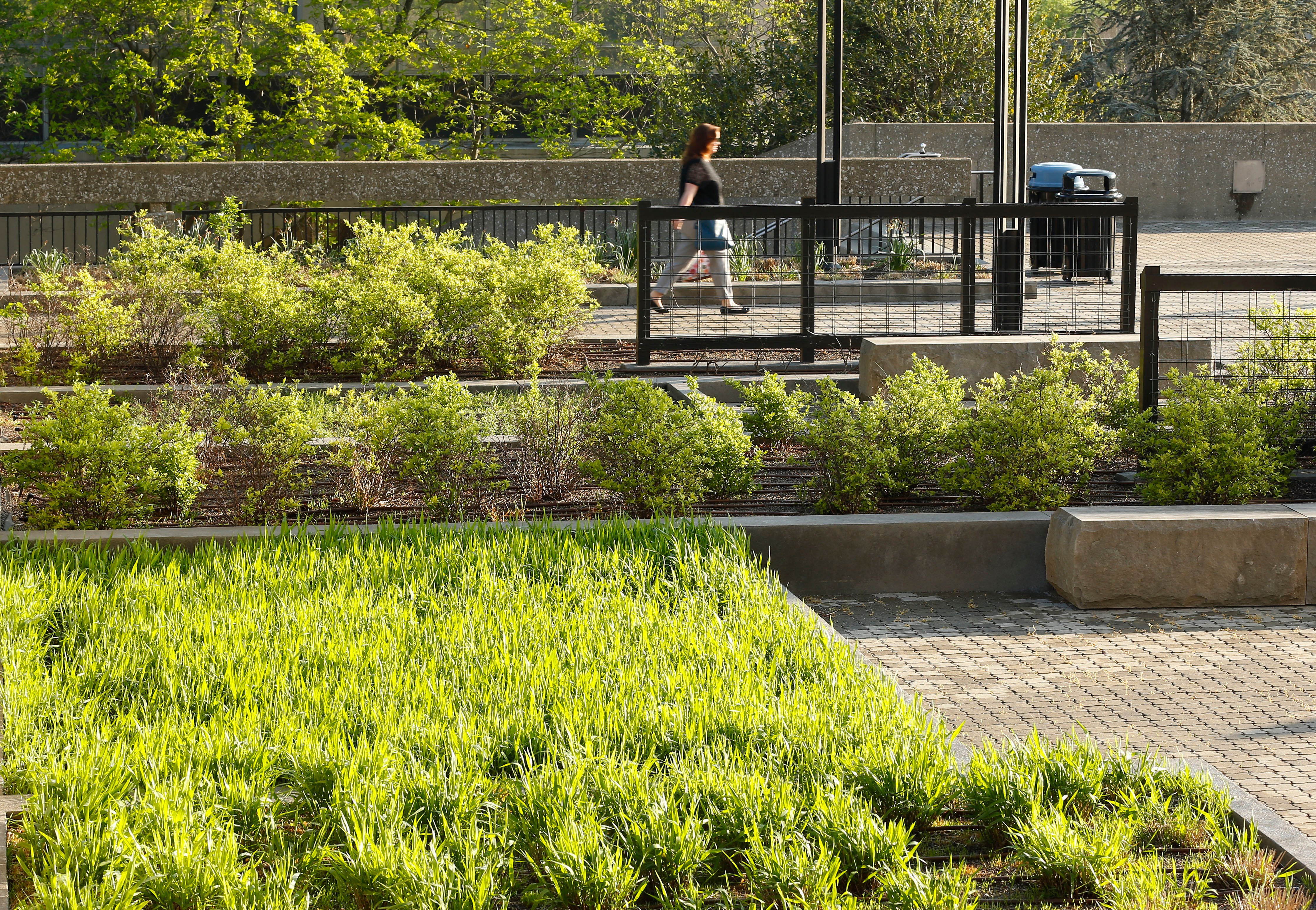Think about the last errand you ran. Maybe you went to the grocery, or a dentist appointment, or dropped your kid off at school. Imagine the trip there: You start in your driveway in the suburbs, turn onto a four-lane road separated by a grassy median, pass office parks and school campuses, and park in a lot with a tiny green plot of small hardy bushes and a tree.
There is likely very little variation in the landscaping and green spaces you drive past. A manicured lawn with striped grass, another manicured lawn with plaid grass and sprinkler system, a median that appears to have been manicured long ago. An office park lawn, lined with identical hedges, next to a parking lot with a few trees — some healthy, some not — and a massive runoff detention basin.
83% of Americans live in suburban areas like this — urban areas that we think of as fundamentally discrete from nature. And nature is a space we typically revere, protect, and visit. Urban outdoor space, in contrast, exists to be used, to tame. We often overlook the interconnectedness of nature and urban areas both within their own ecosystems and to each other.
At the same time, we are reaching an environmental crossroads. The planet is warming at an alarming rate. Our pollinators, who make much of our food possible, are in decline. Biodiversity and air and water quality are declining. Our environment in 100, 50, even 20 years will look and feel different from today. We are accustomed to advocating for our forests, waterways, and other designated natural areas. But most of the threat exists in our populated urban areas, otherwise known as heat islands. What if we change the way we conceive of our urban green spaces and start connecting them back to the larger ecosystem?
Smart landscaping is an approach born of this philosophy. It is more than promoting increased green space and plant life. It considers all aspects of an urban landscape: how it impacts profit, people, and the planet. By making changes to our microenvironments, we can have a big impact on a broader scale. At Klausing Group, we have defined five tenets of a smart landscape:
- Build purposeful lawns
- Plant native species
- Increase the tree canopy
- Manage watershed
- Consider how you’ll get the work done
Stay tuned for a deep dive into the impact each tenet has on profit, people, and planet — and how you can factor smart landscaping into your green spaces.


